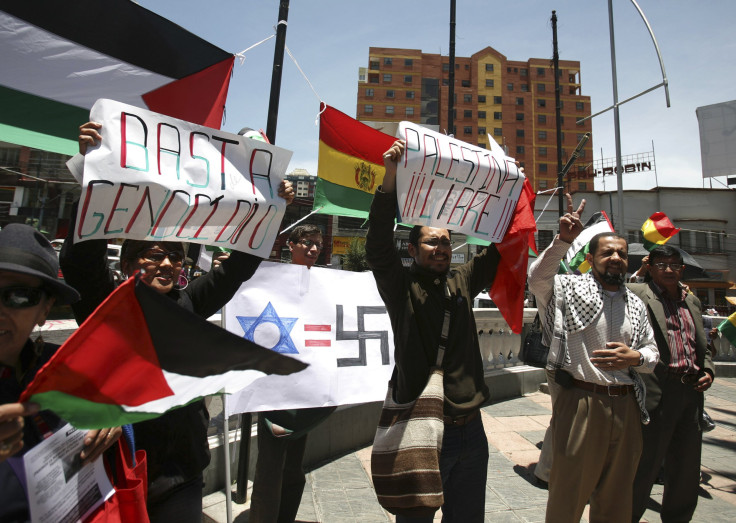Trump's Mexico Wall Compared To Israel West Bank 'Apartheid' Barrier By Bolivian Politician

Bolivian politician Romina Perez Ramos condemned Tuesday Israel's border wall in the West Bank, comparing it to the anti-illegal immigration wall President Donald Trump has proposed along the U.S. border with Mexico, TeleSur TV reported.
Ramos, representing Bolivia's parliament, made the remarks at the Sixth International Conference in Support of the Palestinian Intifada held in Tehran. Ramos called "for the recognition of the full, sovereign, free and independent form of the Palestinian State” and condemned the separation barrier Israel constructed in the Palestinian territory of the West Bank.
She then likened it to Trump's massive border project designed to prevent unauthorized immigration, calling both examples of "imperialism."
Ramos cited a 2004 advisory opinion by the International Court of Justice in which The Hague-based judiciary ruled Israel's construction of the wall was "contrary to international law." Tel Aviv rejected this conclusion and argued the wall was necessary to block the entry of Palestinian militants from the West Bank into Israel.
Palestinians and their supporters have contended that the wall was used to create a racial divide and, like Ramos, have likened the barrier to an "apartheid wall," referencing South Africa's former institutionalized segregation between blacks and whites. Bolivian President Evo Morales broke off relations with Israel in 2014 over its treatment of Palestinians.
Sexta Conferencia Internacional de Intifama #Palestina pic.twitter.com/YQqw0feUbl
— Romina G. Perez R. (@RominaGperezR) February 22, 2017
The construction of a border wall between the U.S. and Mexico was one of Trump's most enthusiastic campaign promises. The Republican real estate magnate pledged a barrier of anywhere between 35 to 55 feet, easily dwarfing the 26-foot tall structure in Israel and likely even the Great Wall of China, which reaches 46 feet high at its maximum. Trump's wall has been estimated at costing somewhere between $10 billion and $40 billion with a length of around 1,000 miles. Its construction was officiated by an executive order signed by Trump last month shortly after his election, but the project's schematics have yet to be announced.
Iran's pro-Palestinian conference, which took place Tuesday and Wednesday, reportedly hosted delegations by 80 nations and 700 foreign guests. Iran's Supreme Leader Ayatollah Ali Khamenei also criticized Israel's policies in a speech in which he called on all Muslim nations to unite in support of the Palestinian cause.
© Copyright IBTimes 2024. All rights reserved.












